Latest Posts by littlelanguagefox - Page 6
The Last - Agust D
주소 - Address
화장실 - Bathroom, Washroom
갈등 - Conflict
일상 - Daily life, Everyday life
우울증 - Depression
꿈 - Dream
친구 - Friend
욕심 - Greed
기요틴 - Guillotine
머리 - Head
주저 - Hesitation
아이돌 - Idol
상상 - Imagination
인생 - Life
기억 - Memory
정신 - Mentality, Mind
괴물 - Monster
강박 - OCD
자신 - Oneself
부모님 - Parents
오염 - Pollution
자존심 - Pride, Self-respect
정신과 - Psychiatry clinic
랩퍼 - Rapper
현실 - Reality
롤렉스 - Rolex
근원 - Root, Cause
잠 - Sleep
가끔 - Sometimes
성공 - Success
시간 - Time
도쿄돔 - Tokyo Dome
누구 - Who
걱정 - Worry
청춘 - Youth
Tu frase @un-mundo-desordenado 👐💕

Tips to learn a new language
The 75 most common words make up 40% of occurrences The 200 most common words make up 50% of occurrences The 524 most common words make up 60% of occurrences The 1257 most common words make up 70% of occurrences The 2925 most common words make up 80% of occurrences The 7444 most common words make up 90% of occurrences The 13374 most common words make up 95% of occurrences The 25508 most common words make up 99% of occurrences
(Sources: 5 Steps to Speak a New Language by Hung Quang Pham)
This article has an excellent summary on how to rapidly learn a new language within 90 days.
We can begin with studying the first 600 words. Of course chucking is an effective way to memorize words readily. Here’s a list to translate into the language you desire to learn that I grabbed from here! :)
EXPRESSIONS OF POLITENESS (about 50 expressions)
‘Yes’ and ‘no’: yes, no, absolutely, no way, exactly.
Question words: when? where? how? how much? how many? why? what? who? which? whose?
Apologizing: excuse me, sorry to interrupt, well now, I’m afraid so, I’m afraid not.
Meeting and parting: good morning, good afternoon, good evening, hello, goodbye, cheers, see you later, pleased to meet you, nice to have met.
Interjections: please, thank you, don’t mention it, sorry, it’ll be done, I agree, congratulations, thank heavens, nonsense.
NOUNS (about 120 words)
Time: morning, afternoon, evening, night; Sunday, Monday, Tuesday, Wednesday, Thursday, Friday, Saturday; spring, summer, autumn, winter; time, occasion, minute, half-hour, hour, day, week, month, year.
People: family, relative, mother, father, son, daughter, sister, brother, husband, wife; colleague, friend, boyfriend, girlfriend; people, person, human being, man, woman, lady, gentleman, boy, girl, child.
Objects: address, bag, book, car, clothes, key, letter (=to post), light (=lamp), money, name, newspaper, pen, pencil, picture, suitcase, thing, ticket.
Places: place, world, country, town, street, road, school, shop, house, apartment, room, ground; Britain, name of the foreign country, British town-names, foreign town-names.
Abstract: accident, beginning, change, color, damage, fun, half, help, joke, journey, language, English, name of the foreign language, letter (of alphabet), life, love, mistake, news, page, pain, part, question, reason, sort, surprise, way (=method), weather, work.
Other: hand, foot, head, eye, mouth, voice; the left, the right; the top, the bottom, the side; air, water, sun, bread, food, paper, noise.
PREPOSITIONS (about 40 words)
General: of, to, at, for, from, in, on.
Logical: about, according-to, except, like, against, with, without, by, despite, instead of.
Space: into, out of, outside, towards, away from, behind, in front of, beside, next to, between, above, on top of, below, under, underneath, near to, a long way from, through.
Time: after, ago, before, during, since, until.
DETERMINERS (about 80 words)
Articles and numbers: a, the; nos. 0–20; nos. 30–100; nos. 200–1000; last, next, 1st–12th.
Demonstrative: this, that.
Possessive: my, your, his, her, its, our, their.
Quantifiers: all, some, no, any, many, much, more, less, a few, several, whole, a little, a lot of.
Comparators: both, neither, each, every, other, another, same, different, such.
ADJECTIVES (about 80 words)
Color: black, blue, green, red, white, yellow.
Evaluative: bad, good, terrible; important, urgent, necessary; possible, impossible; right, wrong, true.
General: big, little, small, heavy; high, low; hot, cold, warm; easy, difficult; cheap, expensive; clean, dirty; beautiful, funny (=comical), funny (=odd), usual, common (=shared), nice, pretty, wonderful; boring, interesting, dangerous, safe; short, tall, long; new, old; calm, clear, dry; fast, slow; finished, free, full, light (=not dark), open, quiet, ready, strong.
Personal: afraid, alone, angry, certain, cheerful, dead, famous, glad, happy, ill, kind, married, pleased, sorry, stupid, surprised, tired, well, worried, young.
VERBS (about 100 words)
arrive, ask, be, be able to, become, begin, believe, borrow, bring, buy, can, change, check, collect, come, continue, cry, do, drop, eat, fall, feel, find, finish, forget, give, going to, have, have to, hear, help, hold, hope, hurt (oneself), hurt (someone else), keep, know, laugh, learn, leave, lend, let (=allow), lie down, like, listen, live (=be alive), live (=reside), look (at), look for, lose, love, make, may (=permission), may (=possibility), mean, meet, must, need, obtain, open, ought to, pay, play, put, read, remember, say, see, sell, send, should, show, shut, sing, sleep, speak, stand, stay, stop, suggest, take, talk, teach, think, travel, try, understand, use, used to, wait for, walk, want, watch, will, work (=operate), work (=toil), worry, would, write.
PRONOUNS (about 40 words)
Personal: I, you, he, she, it, we, they, one; myself, yourself, himself, herself, itself, ourselves, yourselves, themselves.
Possessive: mine, yours, his, hers, its, ours, theirs.
Demonstrative: this, that.
Universal: everyone, everybody, everything, each, both, all, one, another.
Indefinite: someone, somebody, something, some, a few, a little, more, less; anyone, anybody, anything, any, either, much, many.
Negative: no-one, nobody, nothing, none, neither.
ADVERBS (about 60 words)
Place: here, there, above, over, below, in front, behind, nearby, a long way away, inside, outside, to the right, to the left, somewhere, anywhere, everywhere, nowhere, home, upstairs, downstairs.
Time: now, soon, immediately, quickly, finally, again, once, for a long time, today, generally, sometimes, always, often, before, after, early, late, never, not yet, still, already, then (=at that time), then (=next), yesterday, tomorrow, tonight.
Quantifiers: a little, about (=approximately), almost, at least, completely, very, enough, exactly, just, not, too much, more, less.
Manner: also, especially, gradually, of course, only, otherwise, perhaps, probably, quite, so, then (=therefore), too (=also), unfortunately, very much, well.
CONJUNCTIONS (about 30 words)
Coordinating: and, but, or; as, than, like.
Time & Place: when, while, before, after, since (=time), until; where.
Manner & Logic: how, why, because, since (=because), although, if; what, who, whom, whose, which, that.

You’re doing great :))
what is the january mood?

1 Month 1 Language
1 Month Kanji Challenge
6 Words A Day
14 Day Langblr Challenge
30 Day Langblr Challenge
34 Hour Langblr Challenge
55 Days of Vocabulary Challenge
90 Day Vocab Challenge
100 Days Challenge For Langblrs
100 Hour 40 Day Language Challenge
Advanced Language Study
A Question A Day Challenge
BaBaDum Challenge
Build Your Vocab Challenge
Composition Challenge
Fiction Writing Challenge
Langblr 25 Challenge
Langblr Accent Tag
Langblr Culture Challenge
Learn A Language Challenge
Original Langblr Content Challenge
Review Challenge
Subtitles Challenge
Summer Language Challenge
Translating Challenge
Writing Challenge
Challenges for certain months:
February Polyglot Challenge
March Polyglot Challenge
April Polyglot Challenge
May Polyglot Challenge
May Polyglot Challenge
August Polyglot Challenge
September Polyglot Challenge
September: 30 Day Langblr Resource Photo Challenge
October Polyglot Challenge
November Polyglot Challenge
December Polyglot Challenge
December Polyglot Challenge
10 Polyglot Things to Do This September
10 Polyglot Things to Do This October
Langblr NaNoWriMo
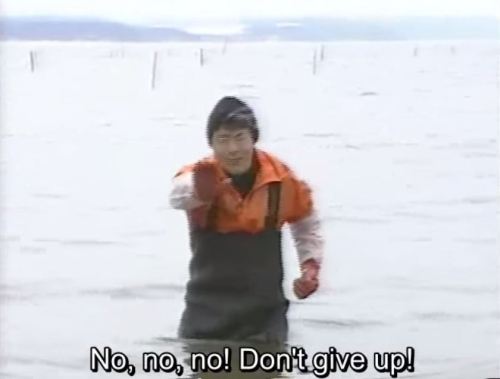
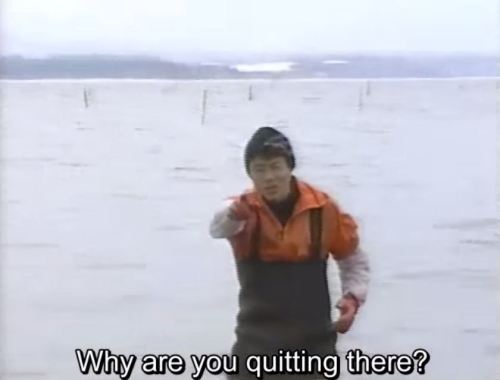
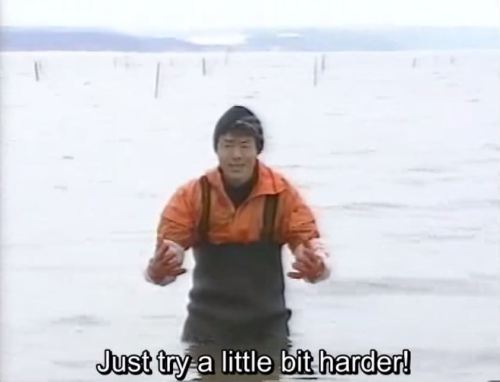


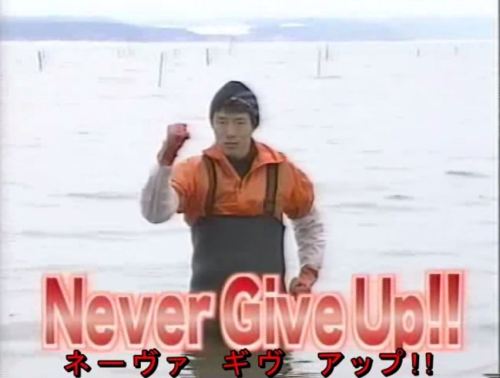
A common mistake English speakers make in learning a new language is translating every word in English literally. By extension, this also involves translating whole sentences word for word.
This is a wee (actually, not that wee) problem for a few reasons:
It means that you will be translating words that don’t have an equivalent in the target language.
It means that you’ll be losing the chance to use words in the target language that don’t have an English translation (advanced vocab).
You’ll be ignoring vital stylistic elements of speaking/writing in the target language. You’ll end up saying things that native speakers of the target language just don’t ever say, even if you use correct grammar and vocabulary.
Now, if you don’t get the hang of this in your target language, I repeat, do not panic. This process of getting the feel of your target language and familiarising yourself with advanced vocab words comes only with practice. It’s not possible to just learn off every rule/word/stylistic element in your target language.
Allow me to illustrate these issues using Spanish and French:
1. Translating words that don’t have an exact equivalent in the target language. Not every word in English has the exact translation in another language, thus a phrase or supplemental synonym is used to convey the meaning in context.
“I think I forgot to lock the door”. In Spanish, this is Pensé que olvidé cerrar la puerta con llave. Pay attention to the phrase for lock. There isn’t a single verb to convey the idea of locking a door. You just say that you close it with the key.
“I want to pass this test on the first try”. In French, this is Je voudrais réussir l'examen au premier essai. We use the word essai to indicate attempt or try, even though this word generally means essay in most other contexts.
2. Not using target language-specific words that don’t exist in English. Some words just don’t exist in English- don’t miss out the chance to use them in another language though! (this is basically the opposite of #1) It indicates a better grasp of the language, comparable to that of natives.
“Last night, I hardly got any sleep because I was anxious”. In Spanish, instead of directly translating the phrase “I hardly got any sleep”, you can use the word desvelado, which covers the entire concept of being unable to sleep. Anoche, estuve desvelado ya que estaba ansioso. In French, you’d say J’ai eu une nuit blanche hier car j’étais anxieux.
“Although we are poor, we can manage with what we have”. In French, you’d never directly translate the word manage, but instead, you’d say Bien qu'on soit pauvre, on peut se débrouiller avec ce qu’on a. The verb se débrouiller expresses the entire concept of being able to get by and survive day by day with next to nothing.
3. The stylistic element. These are just manners of speaking that native speakers use, which includes sentences structures and word order, or even just expressions of choice that would be clunky in English.
In French, let’s say someone asks you, “Est-ce que tu ne voudrais pas une verre de l'eau avec ça?”. This means “Don’t you want a glass of water with that?”. The food is hot and spicy, so of course you’re thirsty. The first thing that comes to mind is to say, “Mais, oui!”. However, that’s not what is said. It’s not that the grammar or word choice is wrong, but generally, after agreeing with a negative sentence, si is used. You would respond, “Mais, si! J'ai soif!”.
In French, they throw in “ça” everywhere, just for emphasis. “Ça, c'est horrible!”, “Ce robe, ça, c'est très belle!”.
Word choice. Instead of saying “Going to this meeting is important”, one would say something akin to “The attendance of this meeting is vital”. “L'assiduité de la réunion, c'est d'une importance capital”. This is kinda why people like to say French is haughty and pretensive (je t'aime, ma petite langue). Nonetheless, this is more common in formal speech.
In Spanish, what comes to mind at first is the order of subjects and verbs. It’s rather common to hear the subject come after the verb(s), all the way at the end of the sentence. A mí madre matarón los narcotraficantes. El tango baila María todos los fines de la semana.
The word “lo” can precede an arbitrary noun. The normal thing to do is lo normal. The good thing is lo bueno. The physical thing is lo físico, and the sexy thing is lo sensual. You will rarely hear someone say “la buena cosa”.
So, how do you improve your grasp of a language? Well, listening to natives speak is definitely one way. You don’t need to visit the country or anything, but maybe get a pen pal, Tumblr friend and ofc, watch and read the news in your target language. Also, immerse yourself in books, movies, TV shows and music. Finally, practice writing and get a teacher or a native to check your work.

apprendre une nouvelle langue | to learn a new language arrêter de fumer | to stop smoking arrêter de se ronger les ongles | to stop biting your nails boire moins d’alcool | to drink less alcohol moins dépenser | to spend less dormir plus | to sleep more faire plus de sport | to work out more lire plus | to read more manger mieux | to eat better obtenir un meilleur emploi | to find a better job passer moins de temps sur Internet | to spend less time on the Internet passer plus de temps en famille | to spend more time with family perdre du poids | to lose weight profiter de la vie | to enjoy life rire plus souvent | to laugh more often se coucher plus tôt | to go to bed earlier se faire de nouveaux amis | to make new friends se remettre en forme | to get back in shape trouver l’amour | to find love voyager plus | to travel more
i wanted to share some thoughts on ‘온유하게 해요 (shine on you)’. everybody is already aware of the title pun by now, but there’s another meaning on it that rly impacts me & i want to say.
so as many know, onew (온유) is an actual word in korean. i wouldnt give 온유 an exact translation but it’s along the meaning of softness, tenderness, or mildness. i’ll use ‘tender’ here.
so, onew’s name is in both titles. ‘온유하게 해요’ means ‘to make (smth) tender/onew’ & in ‘shine on you’, ‘on you’ sounds like ‘onew’ too. that’s cute, but what i want to focus on is the verse where this sentence appears:
‘싱그러운 미소가 불안했던 마음을 온유하게 해요’.
my personal trans goes: ‘your refreshing smile makes my (previously) troubled heart tender’. note that ‘-했던’ implies past onto ‘troubled’.
now, what makes this verse so lovely to me is exactly bc 온유 is his name. he is 온유. then saying ‘your smile makes me tender’ ends up meaning ‘your smile makes me who i am’. and more than that: ‘your smile makes my troubled heart tender’ seems to paint that ‘seeing your smile makes me remember who i really am’.
isn’t that such a beautiful love to have? to remember yourself in someone’s smile, to find strength in them to never stop being own tender self through all the troubles that come. it’s incredibly romantic.
and if you think about it, this verse is so precious bc it comes such a long way: if jinki wasn’t named onew all the way back 10 yrs ago, this sentence wouldn’t mean much today. it’s a verse with a simple sound, but its meaning came together in a careful & rare balance.
it’s this sort of thing that adds all the magic in art.
존댓말 and 반말
This lesson is to learn the differences between 존댓말 and 반말. In addition to that you will learn some Korean honorifics.
There are three politeness levels in Korean. Here is an example of them:
Words ending with -ᄇ니다 are the most polite/ formal. (존댓말)
Words ending with -아요, 어요, 여요 are slightly less formal but still polite. (존댓말)
Words ending with -아, 어, 여 are informal and far more casual. (반말)
Some examples:
고맙습니다 - 고마워요 - 고마워 (Thank you)
반갑습니다 - 반가워요 - 반가워 (Nice to meet you)
알겠습니다 - 알겠어요 - 알겠어 (I understand)
When to use 존댓말 and 반말
You must use 존댓말 if:
The person you are speaking to is older than you
The person you are speaking to you did not give you permission to use 반말 with them
You don’t know or just met the person you are speaking to
You are in a professional environment
You can use 반말 if:
The person you are speaking to if younger than you
The person you are speaking to is older but gave you permission to use 반말 with them
You are the same age as the person you are speaking to
You are writing or speaking to yourself
How to change 존댓말 to 반말
Luckily it is relatively easy to change 존댓말 to 반말. Here’s how:
Present tense:
-아/어/여요 —> -아/어/여
-이에요 / -예요 –> -이야 / -야
Past tense:
-았/었/였어요 —> -았/었/였어
Future tense:
-(으)ᄅ 거예요 –> -(으)ᄅ 거야
Honorifics Vocab:
씨 is added after someone’s name to politely address them.
아줌마 is used to address middle-aged women.
아저씨 is used to address middle-aged men.
선생님 is used to address your senior at work, school, etc… It can also mean “teacher” and “doctor.”
후배 is used to talk about someone who is your junior at work or school. However, you don’t address them as this directly.
언니 is used only by females. This literally means “older sister” but can be used to addressed other older females.
누나 is only used by males. Like 언니, it means “older sister” and can be used to address older females.
오빠 is only used by female. It means “older brother” but can be used to address other older males.
형 is only used by males. It means “older brother” but can be used to address other older males.
More ways to learn:
Video by GO! Billy Korean
Lesson by Talk to Me in Korean
Lesson by kstreet Manila

Pinky promise to shine your light brighter in 2019 ✨ Happy New Year!
🎧: Promise by #JIMIN
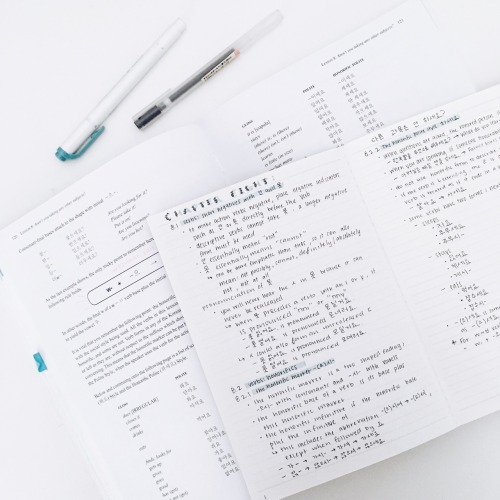


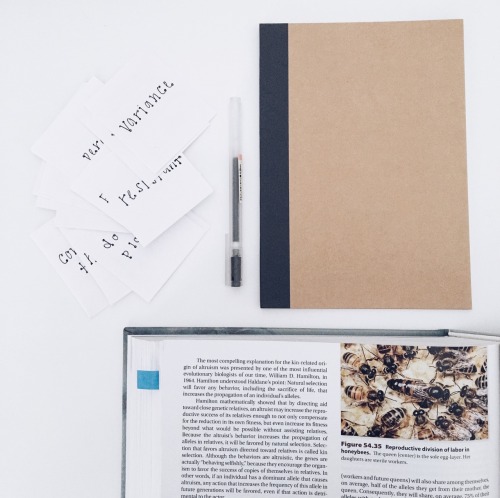
|| 161018 ||
My new shelves + bio, stats, and Korean homework!
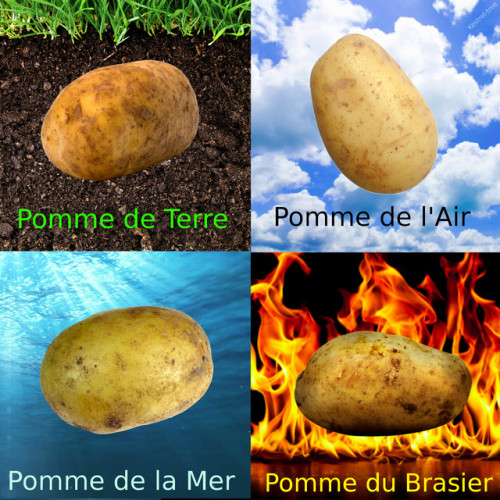
Ne forget pas les quatres food groupes mes amis!







Favorite Korean Albums of 2018
Thank you for this year … I couldn’t have make it without my five shinning stars










If you should be doing your work rn think about Elle Woods and how far she got. Study now.

29.12.2018 / welcoming in 2019 with a new bujo spread!! this covers the end of december 2018 and january 2019 ♡ I don’t know about anyone else, but I have a good feeling about this coming year!!


Creo en Ti por Reik: Vocabulario y Gramática
Esta canción escuché por la primera vez hoy y me sentí que “Creo en Ti” (video abajo)sea una de mas canciones lindas de mi vida. Entonces, quiero compartir con ustedes alguno vocabulario clave y algunos puntos gramaticales que aparecen dentro de esta canción. ¡Disfruta!
TR: I heard this song for the first time today and I felt that “Creo en Ti” is one of the most beautiful songs of my life. So I want to share with you some key vocabulary and some grammar points that appear within this song. Enjoy!
Letras (Lyrics)

Vocabulario Calve
creo en ti - I believe in you
(la) noche - (the) night
(el) cielo - sky (or heaven depending on context)
(la) calle - street
(el) laberinto - labyrinth
rendir (v.) - to defeat (this verb has many meanings, in this context, it means defeat)
(la) piel -skin
(el) corazón - heart
desarmar (v.) - to disarm, to take apart, to disassemble
(el) amor - love
(las) luces - lights
(el) alma (n.f.) - soul
indestructible (adj.) - indestructible
(el) dolor - pain
(las) fantasmas - ghosts, phantoms
(la) paz - peace
(la) caída libre - free fall
Gramática
Porque el cielo ha conspirado en mi favor - Because the heavens have conspired in my favor:
ha conspirado = present perfect tense (haber + participio pasada)
Me haces bien - You make me better (literally: you make me well)
me (pronombre) + haces (hacer en el presente 2a persona) + bien (adjetivo)
Creo en ti - I believe in you
Creo (creer en el presente 1a persona)
Creer means to believe. When pared with “en” + “persona/pronombre” it means “to believe in…”
Me ha vuelto indestructible - I have become indestructible
volverse (con pronombre) = to become
“vuelto” is the past participle of volver(se), it’s irregular
me vuelvo (presente) = I become
me ha vuelto (pres. perfect) = I have become
Mi dolor se quedo kilómetros atrás = my pain stayed kilometers away
se quedo = quedarse en el pasado 3a persona
this verb always needs a reflexive pronoun
Past tenses
te encontré = I found you
crucé = I crossed
esperé = I hoped/waited (what a fun wordplay)
This was super fun to work on! I didn’t include everything because that would take forever! I love this song so much, it’s so cute and sweet.
If you have any questions, reply to this post and hopefully I can help you out. This is my first time making one of these!
Creo en Ti por Reik: Vocabulario y Gramática
Esta canción escuché por la primera vez hoy y me sentí que “Creo en Ti” (video abajo)sea una de mas canciones lindas de mi vida. Entonces, quiero compartir con ustedes alguno vocabulario clave y algunos puntos gramaticales que aparecen dentro de esta canción. ¡Disfruta!
TR: I heard this song for the first time today and I felt that “Creo en Ti” is one of the most beautiful songs of my life. So I want to share with you some key vocabulary and some grammar points that appear within this song. Enjoy!
Letras (Lyrics)

Vocabulario Calve
creo en ti - I believe in you
(la) noche - (the) night
(el) cielo - sky (or heaven depending on context)
(la) calle - street
(el) laberinto - labyrinth
rendir (v.) - to defeat (this verb has many meanings, in this context, it means defeat)
(la) piel -skin
(el) corazón - heart
desarmar (v.) - to disarm, to take apart, to disassemble
(el) amor - love
(las) luces - lights
(el) alma (n.f.) - soul
indestructible (adj.) - indestructible
(el) dolor - pain
(las) fantasmas - ghosts, phantoms
(la) paz - peace
(la) caída libre - free fall
Gramática
Porque el cielo ha conspirado en mi favor - Because the heavens have conspired in my favor:
ha conspirado = present perfect tense (haber + participio pasada)
Me haces bien - You make me better (literally: you make me well)
me (pronombre) + haces (hacer en el presente 2a persona) + bien (adjetivo)
Creo en ti - I believe in you
Creo (creer en el presente 1a persona)
Creer means to believe. When pared with “en” + “persona/pronombre” it means “to believe in...”
Me ha vuelto indestructible - I have become indestructible
volverse (con pronombre) = to become
“vuelto” is the past participle of volver(se), it’s irregular
me vuelvo (presente) = I become
me ha vuelto (pres. perfect) = I have become
Mi dolor se quedo kilómetros atrás = my pain stayed kilometers away
se quedo = quedarse en el pasado 3a persona
this verb always needs a reflexive pronoun
Past tenses
te encontré = I found you
crucé = I crossed
esperé = I hoped/waited (what a fun wordplay)
This was super fun to work on! I didn’t include everything because that would take forever! I love this song so much, it’s so cute and sweet.
If you have any questions, reply to this post and hopefully I can help you out. This is my first time making one of these!
50 Aesthetic-ish things in Spanish ✨

Requested by anon. ✨ Listen while studying
La Luna y las estrellas. The moon and the stars
Luciérnagas en la oscuridad de la noche. Fireflies in the darkness of the night
Mañanas con niebla. Misty mornings
Piedras preciosas. Precious gems, gemstones
Luces de neón. Neon lights
Fotos polaroid. Polaroid pictures
Pétalos de cerezo. Cherry tree petals
Discos de vinilo. Vinyl records
Rosas rosas. Pink roses
Algodón de azúcar, nube, nube de algodón. Cotton candy
Una copa de vino. A glass of wine
Collar de perlas. Pearl necklace
Caminar descalzo/a. To walk barefoot
Una película antigua. An old movie
Galaxias y constelaciones. Galaxies and constellations
Velas. Candles
Las nubes en el cielo. The clouds in the sky
El océano. The ocean
Novelas románticas. Romantic novels
Una ventana con vistas. A window with a view
Sábanas de seda. Silk sheets
Poemas de amor. Love poems
Castillos y palacios. Castles and palaces
Margaritas. Daisies
Una taza de café. A cup of coffee
El amanecer. Dawn
Rayos de sol. Sunshine
Cubitos de azúcar. Sugar cubes
Museos de arte. Art museums
Perfume. Perfume
El bosque. The forest, the woods
Un carrusel, tiovivo, calesita. A carousel
Antigüedades. Antiques
Agua cristalina. Cristal clear water
Un piano de cola. A grand piano
Una inmensa biblioteca. An immense library
Un reloj de arena. An hourglass
Sala de juegos, salón recreativo, los recreativos. Arcade
Lámpara de lava. Lava lamp
Terciopelo. Velvet
Sombra de ojos. Eyeshadow
Cartas del tarot. Tarot cards
Carreteras infinitas. Infinite roads
Una hoguera, fogata. A bonfire
El primer día de nieve. The first day of snow
Vino blanco. White wine
Flores en el pelo. Flowers in your hair
Un diario. A diary
Una boa de plumas. Feather boa
Las historias de cuando éramos niños. The stories of when when we were kids
my vocab lists ✨ request here
Ominous positivity
the 20s are soon upon us
things to include
flapper dresses
jazz music
sex positivity
women’s rights
renewal of arts & culture
increased immigration & cultural sharing
sequins
eyeliner
things to leave behind
racism & nativism
consumerist culture
white guys writing “the great american novel”
Estoy en el coche de mi mamá,
escoba escoba,
conseguir fuera me coche
♡ ♡ ♡
“You are the love of my life,
without you,
I am incomplete”
ah yes, my favourite foreign language feel, “I know what all of those words mean individually but not together like that”
4 exercises to improve speaking skills in your target language:
Tell a story. It’s a great exercise to improve not only your speaking, but also your grammar and vocabulary. Think about what happened to you or anyone else, that you would talk about to your friends or family. Then tell a story out loud using only your target language. Telling stories is a huge part of our everyday talks, so it’s really important to practice that.
Talk about a book, a movie or whatever you want. Imagine you’re convincing someone to check out (or not to check out) a book you have already read. Review every movie or TV series you want, and don’t worry about spoiling anything or offending someone. If it’s a piece of shit, learn how to say that when talking to Queen Elizabeth II, and how to say that when chatting with someone you’d meet at the bar.
Discuss an important topic that is interesting to you. You can choose from anything: society issues, politics, economics, science, environment, culture… First try to explain it and then tell your own opinion on the subject. It’s different than the second exercise since it develops the specific vocabulary.
Read an article and summarise it. Find an article in your target language that interests you and talk about it. You can do it like you would when asked about it in school, or you can do it in more of a “sharing knowledge with my friends” manner.
Et c’est tout! You can call it “act like a youtuber” exercises. If you want, record yourself while speaking. Remember that work is the key to success.
she’s gonna pass her classes and she’s gonna graduate
Shopping Vocab

쇼핑하다 - (to do) shopping
내일 엄마랑 쇼핑하러 갈 거야
I’m going shopping with my mom tomorrow
사다 - to buy
나는 이 바지를 뉴욕에서 샀어
I bought these pants in New York
팔다 - to sell
혹시 여기서 나이키를 파나요?
Do you happen to sell Nike here?
얼마예요? - How much is (it)?
그 원피스는 얼마예요?
How much is that dress?
사이즈 - size
몇 사이즈 입으세요? What size do you wear?
작은 사이즈 small
중간 사이즈 medium
큰 사이즈 large
특대 사이즈 extra large
입어보다 - to try on
이거 좀 입어봐도 돼요?
Can I try this on?
어울리다 - to suit/match
그건 잘 어울려요!
That suits you well! / That looks good on you!
~ 받나요? - Do you accept/take….?
환금 받나요? Do you accept cash?
체크카드 받나요? Do you take debit?
신용카드 받나요? Do you take credit?
교환하다 / 바꾸다 - to change/exchange
이 셔츠를 다른 것과 교환해주시겠어요?
Can you exchange this shirt with a different one?
새것으로 바꿔주세요
Please exchange this for a new one,
환불 - a refund
환불해주시겠어요?
Can I get a refund?
~ 이/가 어디에요? - Where is the…?
화장실이 어디에요? Where is the bathroom?
계산대가 어디에요? Where is the checkout?
탈의실이 어디에요? Where is the fitting room/dressing room?
어서오세요! - Welcome!
비밀번호를 누르세요 - Please enter your pin number
여기에 사인해주세요 - Please sign here
영수증 드릴까요? - Would you like a receipt?
Bonus:
시즌 마지막 세일 - end of season sale
할인 - discount
깎아주세요! - Give me a discount, please!

